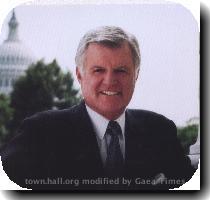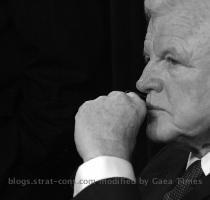Government official: Interior secretary approves what would be first offshore wind farm in US
By Jay Lindsay, APWednesday, April 28, 2010
Official: Interior secretary OKs Mass. wind farm
BOSTON — The Obama administration has approved what would be the nation’s first offshore wind farm, off Cape Cod, two government officials briefed on the decision confirmed Wednesday, inching the U.S. closer to harvesting an untapped domestic energy source — the steady breezes blowing along its vast coasts.
The officials spoke on condition of anonymity to The Associated Press because they were not authorized to speak publicly ahead of U.S. Interior Secretary Ken Salazar’s announcement scheduled for noon Wednesday in Boston.
Salazar’s decision on the controversial Cape Wind project clears the way for a 130-turbine wind farm in Nantucket Sound.
Cape Wind was in its ninth year of federal review, and Salazar stepped in early this year to bring what he called much-needed resolution to the bitterly contested proposal.
Approval of the project would break new ground in the drive toward renewable power, Massachusetts Environmental Affairs Secretary Ian Bowles said.
“This will be the shot heard around the world for clean energy,” he said.
Cape Wind says it can generate power by 2012 and aims to eventually supply three-quarters of the power on Cape Cod, which has about 225,000 residents. Cape Wind officials say it will provide green jobs and a reliable domestic energy source, while offshore wind advocates are hoping it can jump-start the U.S. industry.
Major U.S. proposals include a project in Texas state waters, but most are concentrated along the East Coast north of Maryland, including projects in Delaware and New Jersey.
Massachusetts Gov. Deval Patrick has been an enthusiastic backer of Cape Wind, pushing it as key to the state’s efforts to increase its use of renewable energy.
But Cape Wind met with heavy resistance from people who wanted it moved out of the sound, and its opponents are expected to continue to try to derail the project in court.
Critics say the project endangers wildlife and air and sea traffic, while marring historic vistas. The late U.S. Sen. Edward Kennedy fought Cape Wind, calling it a special interest giveaway. The wind farm would be visible from the Kennedy family compound in Hyannisport.
Home to some of the best-known beaches in the Northeast, Cape Cod has long been a destination for summer vacations and is famous for its small towns and homes in its namesake architectural style.
Democrat U.S. Rep. William Delahunt, who represents Cape Cod, said allowing the project to move forward will open “a new chapter of legal battles and potential setbacks” for the wind power industry.
“Cape Wind is the first offshore wind farm to be built in the wrong place, in the wrong way, stimulating the wrong economies,” Delahunt said Wednesday.
The project is about five miles off Cape Cod at its closest proximity to land and 14 miles off Nantucket at the greatest distance. According to visual simulations done for Cape Wind, on a clear day the turbines would be about a half-inch tall on the horizon at the nearest point and appear as specks from Nantucket.
Opponents also said the power from the pricey Cape Wind project, estimated to cost at least $2 billion, would be too expensive.
U.S. Sen. Scott Brown of Massachusetts, a Republican, said the project will jeopardize tourism and affect aviation safety and the rights of the Native American tribes.
“Nantucket Sound is a national treasure that should be protected from industrialization.” Brown said.
Cape Wind appeared close to final approval in January 2009 when the lead federal agency reviewing the project, the Minerals Management Service, issued a report saying the project posed no major environmental problems.
But two Wampanoag Indian tribes claimed the project would ruin a sacred ritual that requires an unblocked view of the sunrise over the sound, and would be built on long-submerged tribal burial grounds.
Early this month, a federal historic council backed tribal claims and recommended Salazar reject the project, citing its “destructive” affects on views from dozens of historic sites. The governors of six states, including Patrick, last week urged Salazar to ignore that advice, saying that would make it nearly impossible to site offshore wind projects on the Eastern Seaboard because so many offshore wind farm sites are visible from historic properties.
____
Johnson reported from Washington. Associated Press writer Steve LeBlanc contributed to this report.
Tags: Boston, Edward Kennedy, Energy And The Environment, Massachusetts, Native Americans, North America, United States



